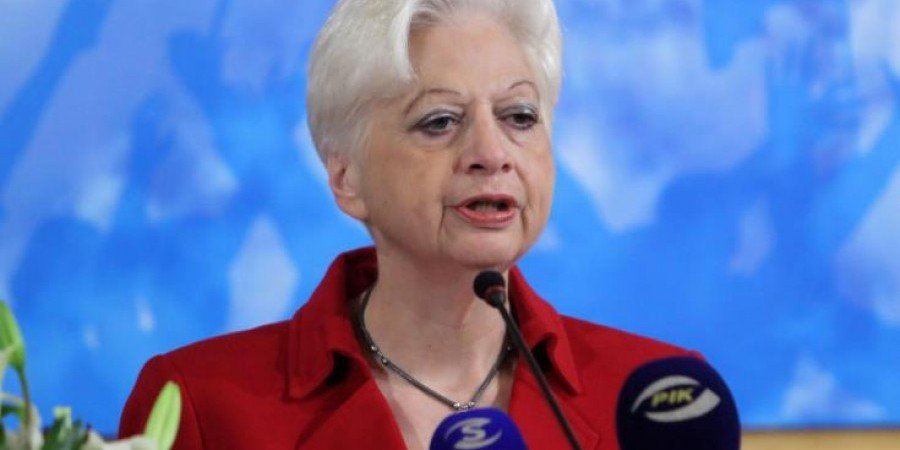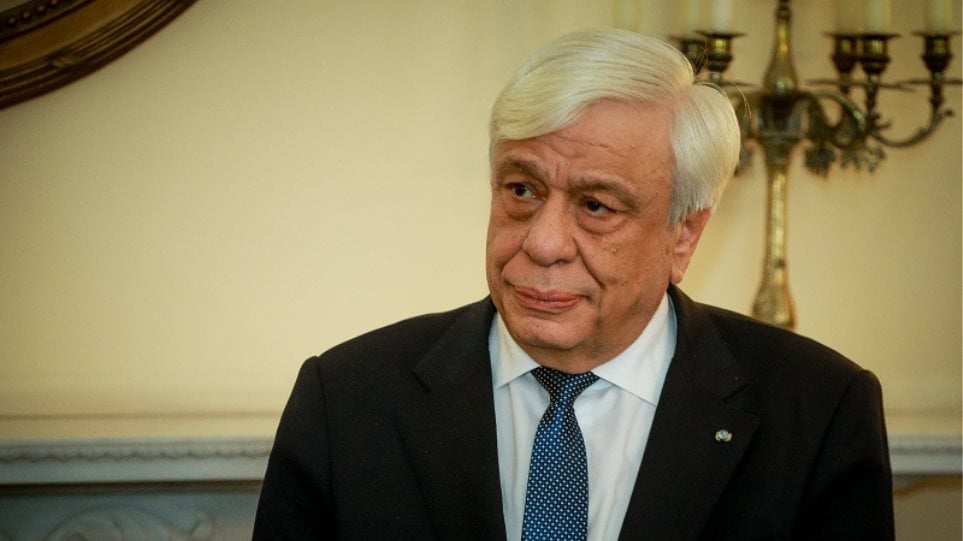Διεθνή
Ελένη Θεοχάρους: Συμπάσχω με τον λαό του Αρτσάχ! Καταδικάζω Πασινιάν και την υποκριτική στάση της παγκόσμιας κοινότητας

Με βαθύτατη οδύνη συμπάσχω με τον Αρτσαχινό Λαό στα μεγάλα δεινά που περνάει, τον άγριο πόλεμο που υφίσταται από το Αζερμπαϊτζάν, την γενοκτονία που εφαρμόζουν οι άγριοι δικτάτορες του Μπακού εναντίον αθώων πολιτών και το Εθνικό ξεκαθάρισμα του Ναγκόρνο Καραμπάχ.
Είναι απίστευτες οι θηριώδες που έρχονται στο φως της δημοσιότητας εναντίον ενός Λαού που μετά από χρόνια σκλαβιάς και δουλείας στα χέρια των αζέρων κέρδισε με το αίμα του και θυσίες πολλές την Ελευθερία. Με βαθύτατη θλίψη βλέπω τον κόσμο να φεύγει από την γη στην οποία έζησε 3 χιλιάδες χρόνια, από την γη στην οποία γράφτηκε το αρμενικό αλφάβητο και λειτούργησε το πρώτο αρμένικο σχολείο.
Καταδικάζω μετά βδελυγμίας την προδοτική στάση της κυβέρνησης Πασινιάν, της συνειδητής προδοσίας και παράδοσης του Αρτσάχ στου αζέρους . Η Μητέρα Πατρίδα όφειλε να αναλάβει τις ευθύνες της ακόμη και για τα λάθη της ηγεσίας του Αρτσάχ.
Πιο έντονα καταδικάζω την υποκριτική στάση της παγκόσμιας κοινότητας, και ειδικά της ΕΕ η οποία ευθύνεται για την αναρρίχηση του πασινιάν στη εξουσία και για την αναγόρευση του Αζερμπαϊτζάν ως στρατηγικού της εταίρου επειδή την προμηθεύει με φυσικό αέριο, που είναι στην ουσία ρωσικό αέριο. Καταδικάζω την αδιαφορία της Ρωσίας, την συμπαιγνίας της με την τουρκία και το αλίγιεφ για την καταστροφή του Αρτσάχ . Καταδικάζω τον ΟΗΕ το ΝΑΤΟ και τις ΗΠΑ ως συνεργούς σε αυτό το έγκλημα κατά της ανθρωπότητας. Θεωρώ την στάση των Αθηνών απαράδεκτη και καταδικαστέα.
Καλώ την Κυπριακή Κυβέρνηση να ανοίξει τις πόρτες για να δεχθούμε ως Κυπριακός Λαός στην αγκαλιά μας τους όποιους Αρτσαχινούς αδελφούς μας καταφέρουν να επιβιώσουν και να φθάσουν στην Κύπρο
Ελένη Θεοχάρους.

Διεθνή
Σε επικίνδυνες ατραπούς η Ευρώπη αν στείλει δυνάμεις αποτροπής στην Ουκρανία
Παρέμβαση του στρατηγού ε.α. Κωνσταντίνου Γκίνη

«Η Ευρώπη κινείται σε επικίνδυνες ατραπούς», προειδοποίησε ο στρατηγός ε.α. και επίτιμος αρχηγός του ΓΕΣ, Κωνσταντίνος Γκίνης αναφορικά με την απόφαση Γαλλίας – Βρετανίας για αποστολή «δύναμης αποτροπής» στην Ουκρανία, μιλώντας στην εκπομπή OnPolitics με τον Φίλιππο Φιλιππακόπουλο στην τηλεόραση της Ναυτεμπορικής.
«Δεν ξέρουμε κάτω από ποιο πλαίσιο Γαλλία και Βρετανία, θα στείλουν δυνάμεις στην Ουκρανία», καθώς όπως εξήγησε, «δεν γνωρίζουμε ποιος θα είναι αυτός ο οποίος θα δώσει την εντολή, όταν δικαίωμα σε αυτό έχουν μόνο το Συμβούλιο Ασφαλείας του ΟΗΕ και η Γενική Συνέλευση».
Ανεξάρτητα από τις τεράστιες ευθύνες της Ρωσίας, όπως είπε, αυτή τη στιγμή υπάρχει μία προσπάθεια εκεχειρίας και με την απόφασή τους Γάλλοι και Βρετανοί οδηγούν προς κλιμάκωση.
Διεθνή
Axios: Η ισραηλινή Mossad ζητά από τις αφρικανικές χώρες να πάρουν Παλαιστίνιους από τη Γάζα
Ο Νετανιάχου αναζητά τρόπους για να μετεγκαταστήσει μεγάλο αριθμό Παλαιστινίων, ενδεχομένως σε χώρες χιλιάδες μίλια μακριά.
Διεθνή
Προωθούνται οι Ρώσοι στο Κουρσκ! κληρές μάχες εναντίον Ουκρανών στο Μπέλγκοροντ
Συνεχίζονται οι μάχες σε ουκρανικό και ρωσικό έδαφος

Η Ρωσία ανακατέλαβε σήμερα άλλο ένα χωριό στη ρωσική περιφέρεια του Κουρσκ, όπου επιδιώκει να εκδιώξει οριστικά τα ουκρανικά στρατεύματα έπειτα από σχεδόν εννέα μήνες μαχών.
Όμως προσκείμενοι στη Μόσχα στρατιωτικοί μπλόγκερ εξέφρασαν ανησυχία για την κατάσταση στο Μπέλγκοροντ, μια παρακείμενη ρωσική περιφέρεια όπου ουκρανικά στρατεύματα εισέβαλαν αυτόν τον μήνα.
Στο Κουρσκ, το ρωσικό υπουργείο Άμυνας δήλωσε πως οι δυνάμεις του ανακατέλαβαν το χωριό Γκογκολέφκα, έναν από μόλις μια χούφτα οικισμούς που εξακολουθεί να κατέχει η Ουκρανία από περίπου 100 που κατέλαβε τον περασμένο Αύγουστο.
Το γενικό επιτελείο στρατού της Ουκρανίας ανακοίνωσε πως ο ουκρανικός στρατός σταμάτησε 18 ρωσικές επιθέσεις στην περιφέρεια του Κουρκ τις τελευταίες 24 ώρες. Δεν σχολίασε την κατάσταση στο Μπέλγκοροντ.
Χαρτογράφηση ανοικτού κώδικά από το Deep State, μια αξιόπιστη πηγή ουκρανικών στρατιωτικών ιστολογίων, δείχνει πως ρωσικές δυνάμεις ελέγχουν ένα μέρος άλλο όχι ολόκληρη την Γκογκολέφκα, και τα στρατεύματα του Κιέβου εξακολουθούν να ελέγχουν λίγο λιγότερα από 80 τετραγωνικά χιλιόμετρα του Κουρσκ.
Στο Μπέλγκοροντ, η Ρωσία είχε πει για πρώτη φορά στις 18 Μαρτίου πως ουκρανικές μονάδες προσπάθησαν να προωθηθούν πέρα από τα σύνορα. Μέχρι σήμερα, σύμφωνα με πολεμικούς μπλόγκερ της Ρωσίας, ουκρανικά στρατεύματα διατηρούν ένα «πάτημα» στην περιοχή.
Ένας από αυτούς, ο Αρκαντζέλ Σπετσνάζα, ανέφερε ότι ουκρανικά στρατεύματα εξακολουθούν να βρίσκονται στον οικισμό Ποπόφκα, και οι μάχες συνεχίζονται, προσθέτοντας πως “η κατάσταση παραμένει τεταμένη”.
Ένας άλλος, ο Ράιμπαρ, ανέφερε πως σφοδρές μάχες διεξάγονται στην Ποπόφκα και η κάθε πλευρά πλήττει την άλλη με μη επανδρωμένα αεροσκάφη (drones).
Ένα τρίτο μπλογκ, το Two Majors, ανέφερε πως ρωσικές δυνάμεις εξακολουθούν να διεξάγουν αμυντικές επιχειρήσεις στην περιοχή.
“Υπάρχουν συνεχή πλήγματα σε συγκεντρώσεις των Ουκρανικών Ενόπλων Δυνάμεων, όμως ο εχθρός εξακολουθεί να έχει σοβαρές επιθετικές δυνατότητες για αυτή την κατεύθυνση και δεν έχει εγκαταλείψει τα σχέδια για περαιτέρω προώθηση, περιλαμβανομένων νέων περιοχών του μετώπου”, ανέφερε το Two Majors σε ανάρτηση στο Telegram.
-

 Αναλύσεις6 ημέρες πριν
Αναλύσεις6 ημέρες πρινΜάικλ Ρούμπιν στη Hellas Journal: Η σύλληψη Ιμάμογλου σηματοδοτεί ότι ο Ερντογάν θα απελευθερώσει τον Οτζαλάν μέσα σε νεκροσακούλα!
-

 Άμυνα3 εβδομάδες πριν
Άμυνα3 εβδομάδες πρινΙσραηλινή δημοσιογράφος: “Με τη διάλυση του NATO η Τουρκία θα βρεθεί σε μεγάλο κίνδυνο! Θα χωριστεί στα δύο”
-

 Πολιτική2 μήνες πριν
Πολιτική2 μήνες πρινΈρχεται «τσουνάμι» αποκαλύψεων και στην Ελλάδα για USAID! Οι ΜΚΟ του Soros και οι Πρέσπες του Τσίπρα
-

 Πολιτική3 εβδομάδες πριν
Πολιτική3 εβδομάδες πρινΈλληνας από τον Δομοκό αιχμάλωτος των Ουκρανών
-

 Πολιτική2 μήνες πριν
Πολιτική2 μήνες πρινΑποκάλυψη Στρος Καν! Με έφαγαν οι ΗΠΑ όπως και τον Καραμανλή!
-

 Απόψεις2 μήνες πριν
Απόψεις2 μήνες πρινΔιαβεβαιώνω τον κ. Μητσοτάκη ότι η κυβέρνησή του δεν έχει μέλλον
-

 Πολιτική4 εβδομάδες πριν
Πολιτική4 εβδομάδες πρινΣυναγερμός από τον δήμαρχο Αλεξανδρούπολης! “Αθόρυβος εποικισμός – Βούλγαροι και Τούρκοι αγοράζουν σπίτια στην περιοχή”
-

 Αναλύσεις2 μήνες πριν
Αναλύσεις2 μήνες πρινΟ Τραμπ δεν ξεχνά τί έκανε η Ελλάδα!










